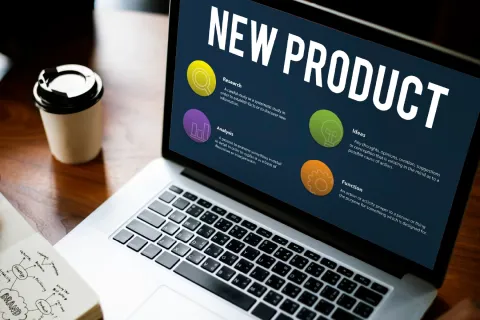
Regulatory inspections are crucial for ensuring compliance and quality in the pharmaceutical industry. Adequate preparation can significantly improve the efficiency and effectiveness of the process. Pharmaceutical companies must streamline their inspection process, demonstrate their commitment to compliance, and maintain a positive relationship with the Regulatory authorities.
In this blog, we will discuss six (06) essential tips to help pharmaceutical companies prepare for a Regulatory inspection, explicitly focusing on those conducted by the United States Food and Drug Administration (USFDA).
Following are the pointers that you must consider before a USFDA inspection:
- Ensure that All Important Documents and Records are Accessible: All the necessary documents should be readily available. A practical approach to facilitate an efficient inspection is to prepare an inspection binder containing the essential documents and records. Here are some pointers to aid the process of maintaining documents/records:
- Include all essential procedures related to document/change controls, complaint handling, Corrective and Preventive Actions (CAPAs), and other quality systems.
- Provide a quality system overview, including a quality manual (if applicable), organizational charts, job/role descriptions, training protocol/records, device listings, and responsibility matrices.
- Ensure that all quality-related documents and records are readily available for quick reference.
- Compiling and organizing the necessary information in an inspection-ready binder can help you promptly respond to requests from investigators, avoid unnecessary delays, and showcase your commitment to compliance.
- Compile All Product Complaints and CAPAs Received since the Last Inspection: Investigators usually request for information on product complaints and CAPAs. You can prepare for their request using the following steps:
- Designate a knowledgeable individual who can comprehensively explain the complaint-handling process and provide details about specific complaints.
- Ensure that the electronic complaint information is readily accessible (in case complaints are managed electronically).
- Prepare the basic information on each complaint, including the product name, date of receipt, Medical Device Reporting (MDR)-reportable status, and a summary of the issues identified.
Proactively organizing and documenting all the above information can help you efficiently address inquiries from the investigator and demonstrate your commitment to Quality Control (QC).
- Provide Clarifications Regarding the Pharma Inspection Procedure: Providing clear and concise instructions to all the personnel involved is crucial for facilitating a smooth inspection process. You can follow these steps to simplify the inspection process:
- Avoid using complicated procedural language; rather, present a list of dos and don'ts in simple and accessible words.
- Emphasize the importance of answering questions directly and truthfully and avoiding guesses when unsure.
- Refrain from resolving issues on the spot during the inspection.
- Regularly communicate with employees to ensure that they understand their responsibilities and promptly address any potential misunderstandings.
Clear communication and well-defined procedures will help promote a more efficient and successful inspection.
- Mark and Organize Items to be Requested during the Inspection: Organizing and labeling materials for the inspection is essential for quick retrieval. Follow these pointers to organize well:
- Anticipate the products, processes, and clinical programs that investigators might evaluate.
- Ensure that the relevant marketing materials are easily accessible.
- Educate employees who may be questioned about these items and ensure their familiarity with the product and the USFDA’s expectations.
A well-organized system for locating and presenting requested documents will demonstrate your professionalism, preparation, and readiness for the inspection.
- Provide Report Corrections/Recalls Promptly and Keep All Related Documentation Up to Date. Companies that have reported corrections or recalls must be prepared to provide documentation to support the same, as per Part 806.10 of the Code of Federal Regulations (CFR). You must ensure that all corrections/recalls are properly documented and are up to date since investigator expectations include examining your CAPAs, risk management systems, and recall processes.
Remember that every recall requires a corresponding CAPA; thus, ensure that the records are comprehensive and easily accessible during the inspection. Failure to report corrections/recalls or maintain updated documentation may raise concerns about compliance and could lead to further scrutiny from the Regulatory authorities.
- Conduct Mock Inspections. Mock USFDA inspections are an excellent way to assess and enhance your readiness for the inspection. While internal mock inspections can be helpful, engaging an unbiased professional from outside who can accurately replicate the real inspection scenario is also recommended.
USFDA mock audit inspections assist you in identifying potential gaps and weaknesses in your processes, documentation, and employee readiness. They provide an opportunity to simulate the investigator’s approach, ask relevant questions, and evaluate your team’s ability to respond effectively and promptly.
Therefore, conducting periodic mock inspections can help you fine-tune your strategies on inspection-readiness and address any deficiencies in the process. They will also instill confidence in your employees so that they are able to handle inspections in the appropriate manner – with ease, compliance, and professionalism.
Final Thoughts
In conclusion, preparing for a USFDA Pharma Regulatory inspection is a critical process that requires careful planning and attention to detail.
Clear communication of inspection procedures, organizing an inspection-ready binder, labeling items for easy retrieval, compiling product complaints and CAPAs, reporting corrections/recalls promptly, and conducting mock inspections are the key pointers you need to keep in mind to be prepared and streamline the inspection process.
Such proactive measures ensure compliance, foster a positive relationship with the Regulatory authorities, and demonstrate your commitment to maintaining the industry’s highest quality and safety standards. If you are looking for a proven expert to help you prepare for Regulatory inspections and conduct mock audits, consult Freyr. Our experts will help you navigate the inspection process and ensure compliance!









